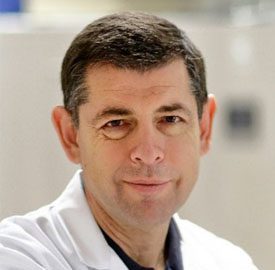
Professor Markus Heilig is the Founding Director of the Center for Social and Affective Neuroscience of Linköping University and the region of Östergötland, a major initiative supported by the Swedish Research Council. He was formerly the Director of clinical and translational research at the National Institute on Alcohol Abuse and Alcoholism (NIAAA), a division of the NIH, from 2004 to 2015.
His program studies brain mechanisms behind addiction and anxiety disorders using translational approaches. Prof. Heilig’s research strategies span from analysis of gene expression and its epigenetic programming, through behavioral studies int rodent models, to human experimental medicine that utilizes behavioral, neuroendocrine, psychophysiological and functional brain imaging-based methods. The overall objective of his research is to identify novel therapeutic targets. This research has over the years generated >300 peer-reviewed papers, including publications in Science, PNAS, Lancet and other high impact journals, yielding >25000 citations, and an h-index of 88. Prof. Heilig has also authored a textbook on addiction for medical professionals, and popular science books for the lay public.
Prof. Heilig is an elected member of the Royal Swedish Academy of Sciences, a Wallenberg Foundation Clinical Fellow, a Fellow of the American College of Neuropsychopharmacology, an editor at Neuropsychopharmacology, and a scientific advisor to the Swedish Medical Products Agency. He has also received numerous, prestigious awards for his groundbreaking research.
He received his MD and PhD from Lund University, Sweden, in 1986 and 1989, respectively, and he completed his post-doctoral work with George Koob at The Scripps Research Institute in La Jolla, CA from 1990-1992. Following his post-doctorate work, Prof. Heilig returned to Sweden where he completed a residency in psychiatry and served at the Karolinksa Institute in Stockholm, Sweden where he subsequently served in roles of increasing clinical and academic leadership.